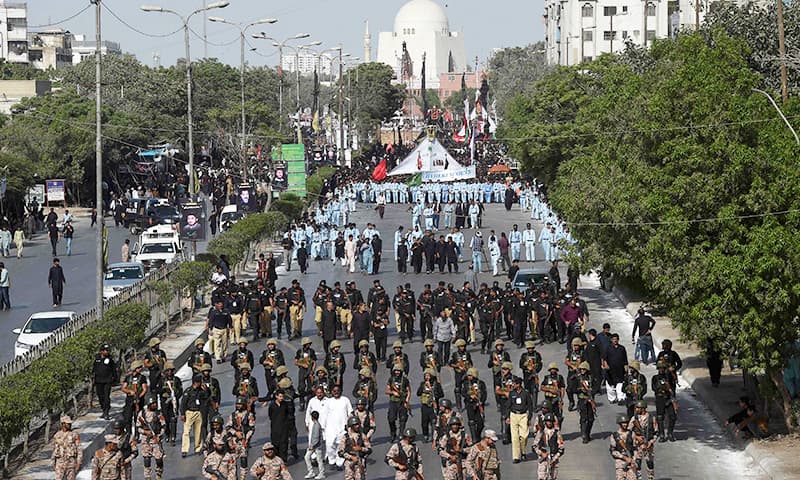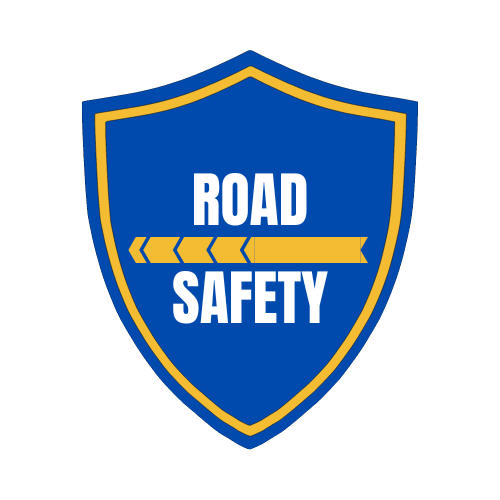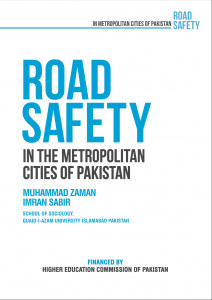Youm e Ashoor is one of the most sacred and widely observed day in our country. The traditional religious processions and rallies of Azaa Dari are carried out throughout the country during the holy month of Muharram. Sabeels of milk, kheer, sharbat, cold water and other eatables are organized on the roadsides that give away drinks and food stuff to everyone who needs. As most of the activities in the days of Muharram are conducted on roads, so they directly affect the flow of traffic and road safety. Secondly, the 9th and 10th of Muharram are national holidays in Pakistan so most of the people are free to hang around on the holiday. This year Friday was added with the weekend and that created great chaos on roads, intercity bus terminals and local bus stops as well. The roads were overcrowded with two and four wheeled vehicles, and traffic congestion was reported in many areas of all cities in the country. We must appreciate the role of local law enforcing agencies and traffic police to put their maximum effort to create alternative routes and to ensure the safety of the participants of the processions. Unfortunately, the element of terrorism is also a big threat for the agencies in these days and they need to address this issue as well. There are two major groups on the roads during these activities, one is the Azaa Daran or the participants of the procession. The second is the spectators gathered on the roadsides to watch them. The number of spectators is mostly higher than the participants. They gather in small and large clusters and block the alternate route that creates traffic congestion and unrest for the road users. This congestion increases the risk of on road crashes as in most of the cases one side of the road is used for two-way traffic in this situation. These bystanders move unpredictably and often get hit by some vehicle or at times they cause multiple vehicles hitting each other while saving them (very common experience). It has also been observed that at different spots many passing by motor cyclists and some car drivers as well stop their vehicles in the middle of the road to watch a passing by procession or to get some drink or food stuff from the Sabeel. These food spots are main points of congestion on roads in these days. This is a sacred day associated with Imam Hussain RA and we all must respect all the activities associated with these days.
In this situation, it is the responsibility of all citizens to make special efforts to avoid any unpleasant and unwanted situation in these days. It is better to stay home if you are not a follower of Fiqaa e Jaffria . If you are passing by a procession keep the pace of your vehicle slow and be more vigilant to handle the congested traffic situation. Do not stop your vehicle unnecessarily on the alternate routes just to make videos and pictures, as it is unethical and immoral to do so without consent of the people you are picturising. Co-operate with the traffic police, preferably avoid the areas that are known for these rituals in your city. Do not hang out around the crowded places as high risk of terrorism is always a factor in these days.
At the same time the participants of processions and the organizers of the sabeel must take special measure to avoid congestion and other issues of road safety. They should strictly follow the allocated tracks. Do not set food points on main roads. Another very alarming thing that has been noticed is the use of extra-long bamboos with oversized religious banners, Alam and other material carrying religious slogans and messages. These long flags and bamboos are very difficult and complicated to handle. A slight miss handling of such things has created big mess. Sometimes they enmesh with the power supply wires and cause break down of electricity and can cause fatal incidents. If these objects fell upon the road, they may cause heavy damage to vehicles around and will become life threatening for many. So, the organizers of these processions should consider it very seriously and should strictly elude the use of such things that can create life threatening situations.
Islam is the religion of peace, harmony, courtesy and kindness. The teachings of our beloved Holy Prophet (SAWAS) are to be kind to all the creation around you. Being a Muslim and a civilised citizen, it is our moral, ethical and religious obligation to be considerate and careful in our behaviour with our fellow beings and to keep the sanctity of all such occasions for the sake of humanity and must take care to save the precious lives, time and resources for a better Pakistan.
Road Safety and Muharram Rituals


